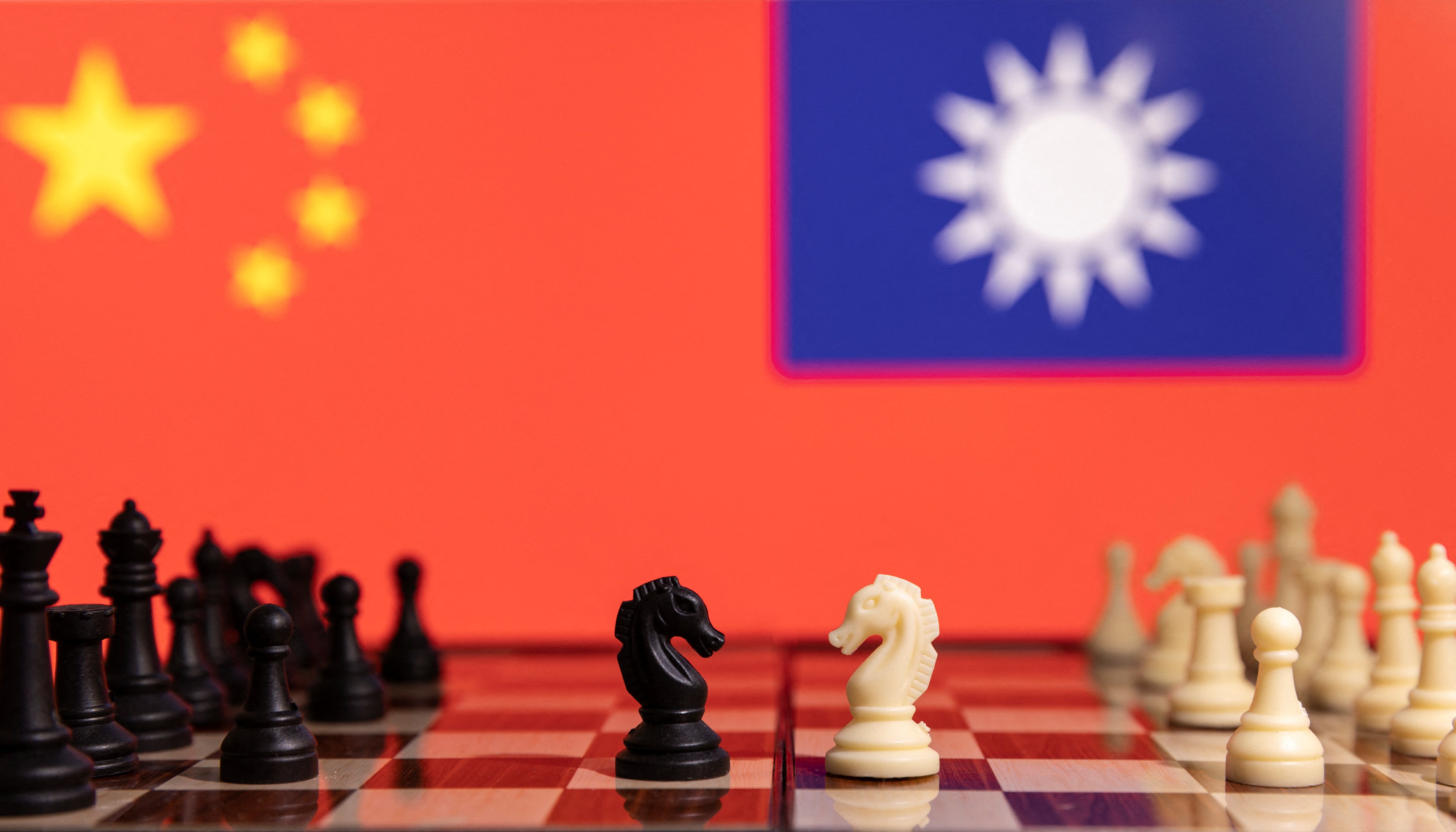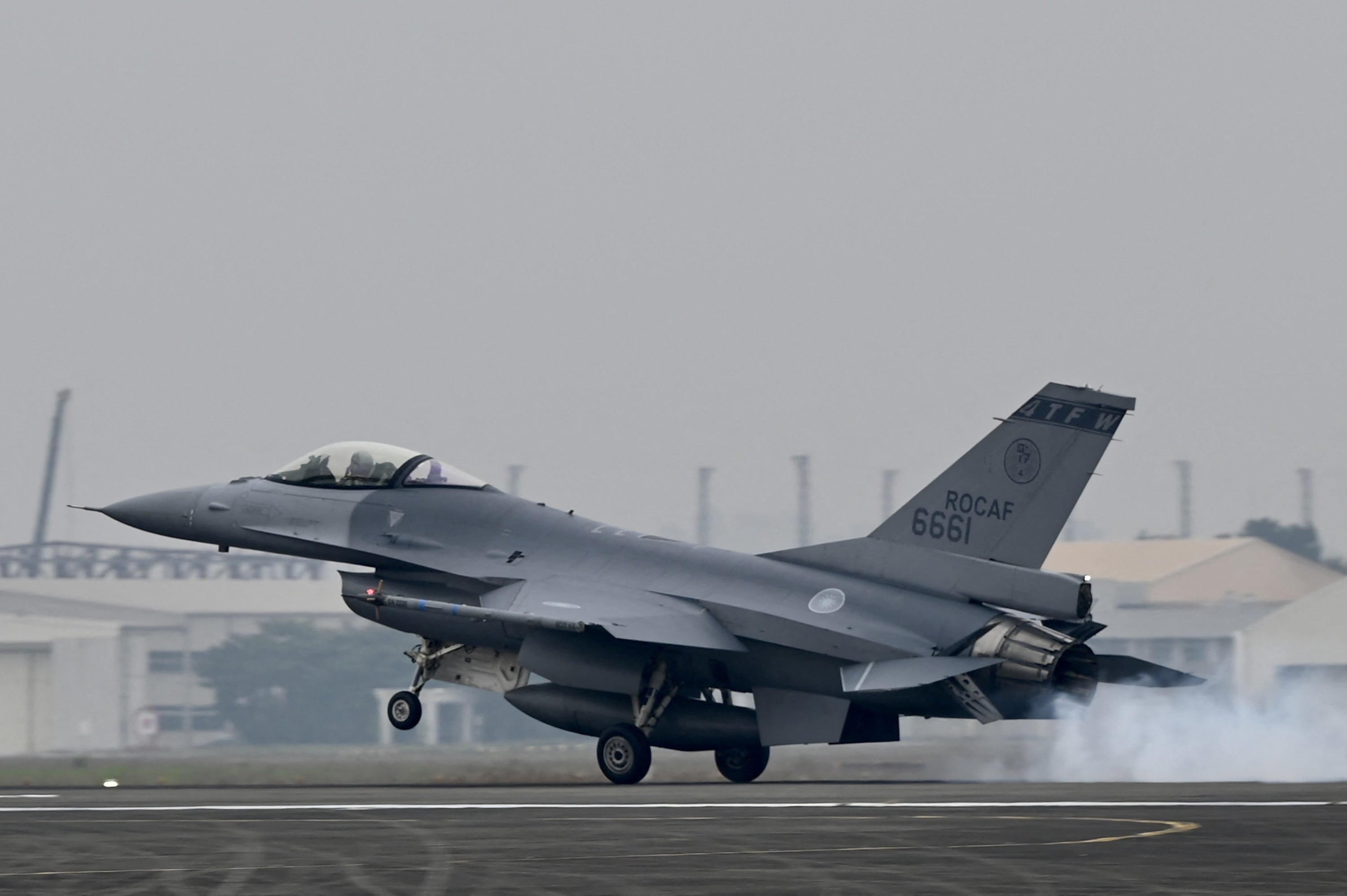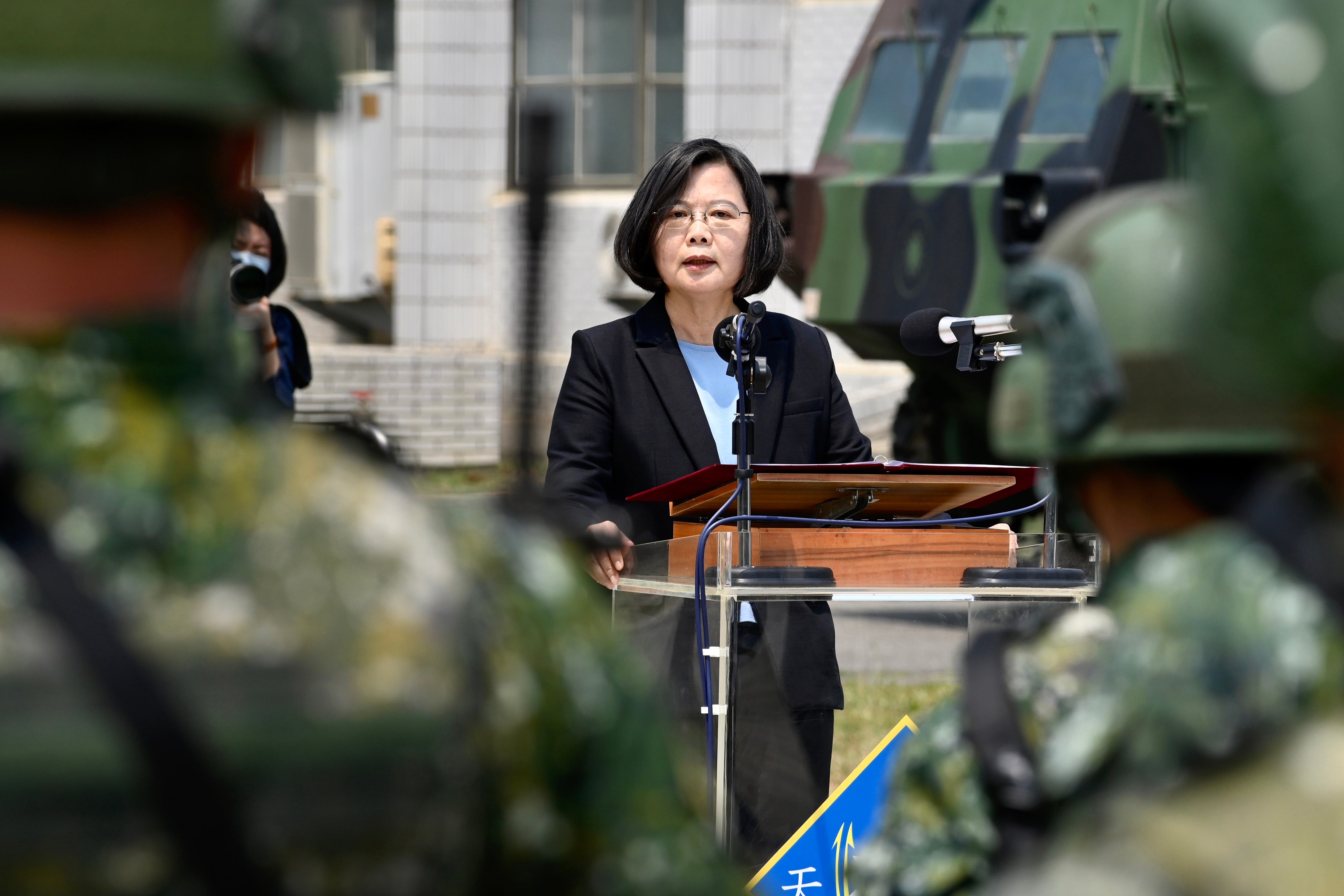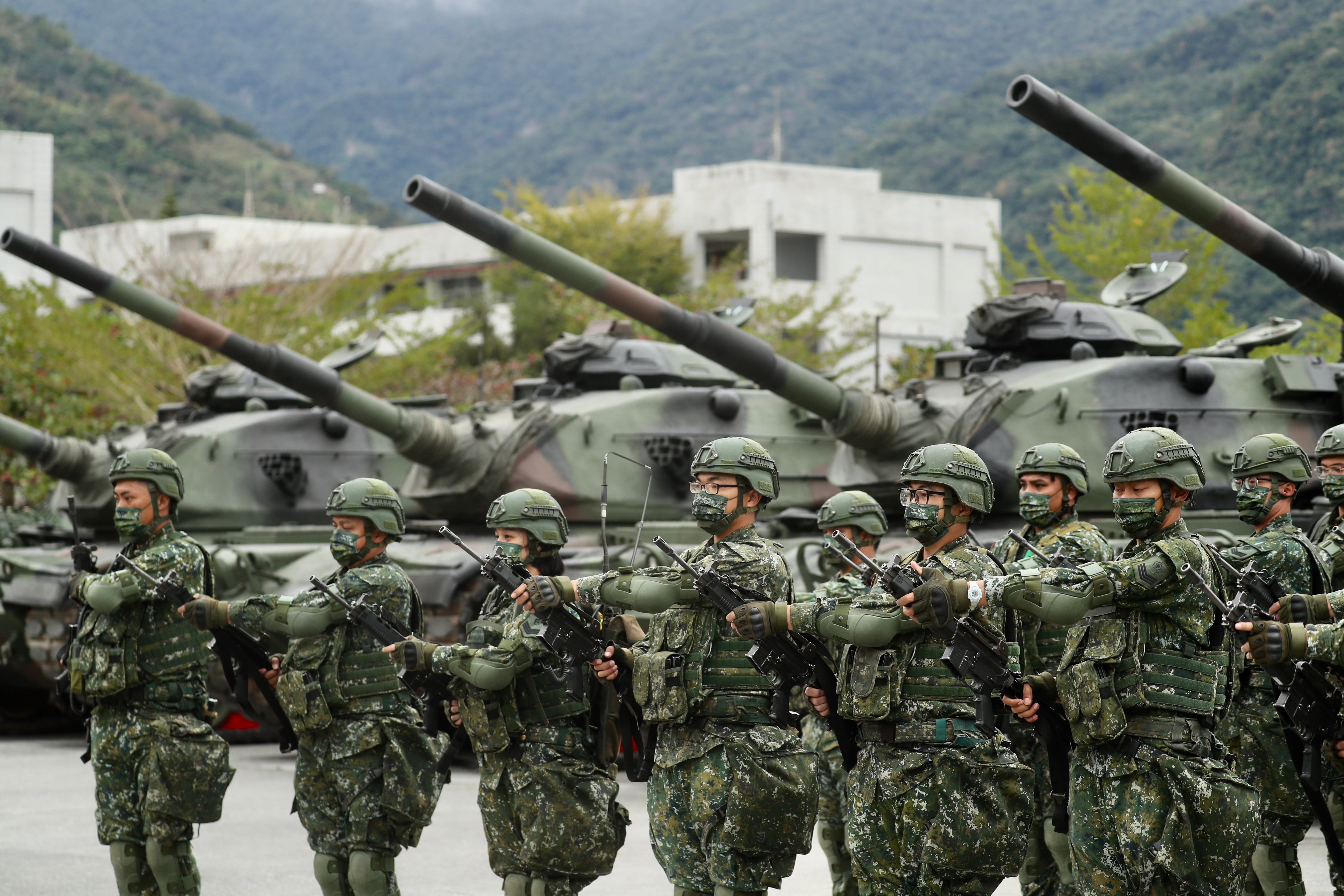Taiwan fears China could take leaf out of Russia’s playbook after invasion of Ukraine
Taipei is uneasy that the crisis could embolden Beijing to ramp up pressure on or even attack amid a campaign of intimidation against the self-governing island it claims as its own, reports William Yang


As news unfolded of Russia’s invasion of Ukraine, people thousands of miles away on Taiwan followed the developments with growing unease – some describing it as the “worst case scenario” for the self-governing island that China considers part of its territory.
As a small democracy that sits next to an imposing, autocratic neighbour, parallels have been drawn between Taiwan and Ukraine – with Taiwanese citizens, officials, and world leaders alike concerned Beijing could seize upon the crisis to ramp up pressure on or even attack the island.
“How the world is reacting to Ukraine could be exactly how the world reacts to Taiwan [in the case of a Chinese invasion],” said Kathy Cheng, an entrepreneur who runs a gift registry website. “Would the world care?”
China has waged an intimidation campaign against the island in recent years, poaching its diplomatic allies and flying fighter jets into its air defence identification zone (ADIZ).
Just hours after Russia invaded Ukraine on Thursday, Taiwan’s air force scrambled to warn off nine Chinese military aircraft that entered its ADIZ.
Last month, Taipei set up a Ukraine working group under its National Security Council, and President Tsai Ing-wen said on Wednesday that Taiwan must increase its surveillance and alertness on military activities in the region – without directly mentioning China
While Taiwan has said the region’s situation is “fundamentally different” from Ukraine’s, Ms Tsai has expressed “empathy” for Kiev because of the military threat Beijing could pose to Taipei.
A Taiwanese official told Reuters this week there were some similarities between Vladimir Putin’s and Xi Jinping’s military moves in recent years, pointing to Russia’s “grey zone” tactics towards Crimea before annexing it in 2014.
Taipei has called China’s frequent air missions near the island a “grey zone” tactic.

China has rejected any comparison between the Ukraine crisis and Beijing’s claim over Taiwan, arguing that the scenario showed a “lack of the most basic understanding of the history of the Taiwan issue”.
“Taiwan, of course, is not Ukraine,” Chinese foreign ministry spokeswoman Hua Chunying said this week.
“Taiwan has always been an inalienable part of China’s territory. This is an irrefutable historical and legal fact,” she said, accusing Taipei and the west of using Ukraine to “maliciously hype up” military threats and whip up anti-China sentiment.
One of the main talking points in Taiwan has been the issue of sanctions – and the fact punitive measures slapped on Russia by western nations after Vladimir Putin’s decision to recognise two breakaway regions of eastern Ukraine failed to deter an all-out invasion.
“If other countries realise they have seen the limits of economic sanctions imposed by western countries, Russia, China and other nations may seek to exploit this limit in the future,” said Anthony Yang, a pilot, who has been following the issue closely.
“They will try to keep testing the limit of western responses,” he added.

China’s ambassador to the US, Qin Gang, raised eyebrows last month when said the two countries could face military conflict over the future of Taiwan.
“The Taiwan issue is the biggest tinderbox between China and the United States,” he said in an interview late in January. “If the Taiwanese authorities, emboldened by the United States, keep going down the road for independence, it most likely will involve China and the United States, the two big countries, in the military conflict.”
Several experts said the US has a stronger security commitment to Taiwan than Ukraine in the event of an attack – and that the island was of more importance to Washington strategically.
“Taiwan is a lot more defensible for the US,” said Wen-Ti Sung, a lecturer at the Australian National University’s Taiwan studies programme.
“In terms of the great power concern, China is the second strongest country in the world now, so naturally, the US will find the Indo-Pacific region of much more importance than eastern Europe,” he told The Independent.
Da-Jung Li, a professor of international relations and strategic studies at Tamkang University in Taiwan, said that while the US has ruled out sending troops into Ukraine, it has a strategically ambiguous security commitment to Taiwan based on the Taiwan Relations Act.
“In the past few years, the United States has often said that they value peace and stability across the Taiwan Strait, and that its commitment to Taiwan is rock solid,” he said. “While Washington’s commitment isn’t sending troops to protect Taiwan, it still maintains a level of flexibility.”
While Taiwan is increasingly anxious about Chinese aggression in light of the Ukraine crisis and some analysts believe Beijing could turn the screw imminently, others think such talk is premature at best and misguided at worst.
“China is not going to irrationally attempt military action against Taiwan this week just because Putin is choosing to invade Ukraine,” said Lev Nachman, a postdoctoral fellow at the Harvard Fairbank Centre for China Studies.
“If [China] chooses to take military action against Taiwan, it won’t be now, and won’t be justified using Russia’s actions,” he wrote on Twitter earlier this week.

Taiwan has lived under the threat of Chinese invasion since the defeated Republic of China government fled to the island in 1949 after losing a civil war to the Communists. China has not ruled out the possibility of a military incursion against Taiwan.
Speaking at the Munich Security Conference on Saturday, Boris Johnson said that if western nations failed to fulfil their promises to support Ukraine’s independence, it would have damaging consequences worldwide, including for Taiwan.
And in Washington, US House of Representatives Intelligence Committee chair Adam Schiff said on Thursday that western actions were being closely watched by China with an eye to whether it could successfully invade Taiwan.
“If Russia’s attempt to do this goes unpunished or under-punished, then gradually, that may weaken the cohesion of the western bloc,” said Mr Sung.
“And we know that in the longer term, the ‘united west’ will be pivotal in terms of the US attempt to deter China [from invading Taiwan],” he added.






Join our commenting forum
Join thought-provoking conversations, follow other Independent readers and see their replies
Comments